Table of Contents
Introduction
In today’s competitive online marketplace, driving traffic to your store is only half the battle—the real challenge lies in converting visitors into loyal customers. That’s where e-commerce marketing platforms step in.
These tools help businesses streamline campaigns, personalize customer interactions, and optimize every touchpoint in the buyer’s journey. From automation and analytics to omnichannel engagement, the right platform can significantly boost sales and long-term growth.
This guide explores the top 8 e-commerce marketing platforms that help brands attract, engage, and retain customers. Whether you run a small store or a global business, these tools offer the features and flexibility to stay ahead of the competition.
Key Features of an E-commerce Marketing Platform
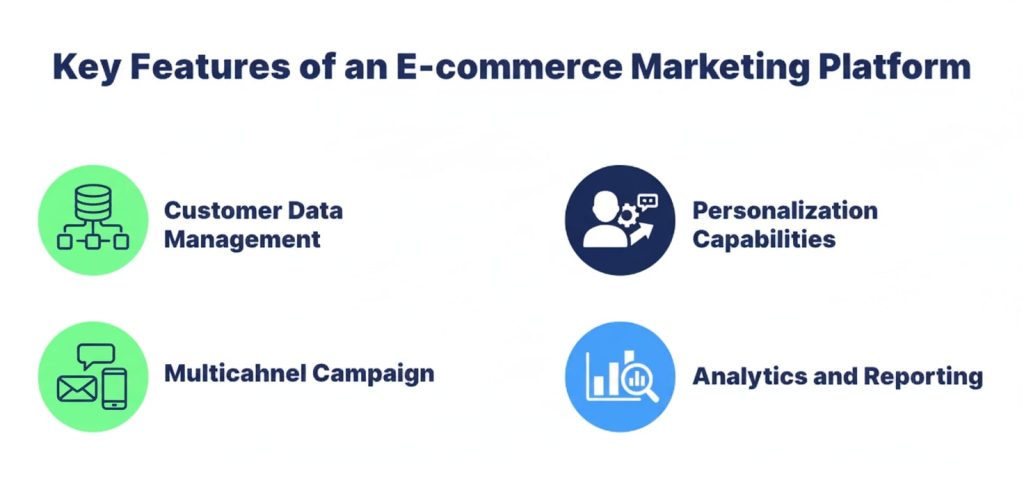
The right e-commerce marketing platform goes beyond basic promotion—it equips businesses with tools to understand their audience, create personalized experiences, and measure success. Some of the essential features include:
- Customer Data Management: Centralizes customer information to build detailed profiles and track behaviors. This ensures marketers have a single source of truth for smarter targeting and segmentation.
- Personalization Capabilities: Delivers tailored recommendations, offers, and messages based on customer preferences. By making each interaction relevant, businesses can increase engagement and boost conversions.
- Multichannel Campaign: Enables consistent engagement across email, SMS, social media, and more. This unified approach helps brands reach customers wherever they are, improving overall campaign effectiveness.
- Analytics and Reporting: Provides insights into campaign performance, customer trends, and ROI to guide smarter decisions. With real-time data, businesses can adjust strategies quickly and stay competitive.
#8 Klaviyo

Klaviyo is a powerful e-commerce marketing platform designed to help brands deliver personalized customer experiences at scale.
- Known for its seamless integrations with Shopify, BigCommerce, WooCommerce, and other major e-commerce platforms, it allows businesses to create data-driven campaigns that drive conversions
- Advanced email and SMS automation, pre-built templates, and deep segmentation based on real-time customer behavior
- Brands that want to maximize personalization and customer retention through automated workflows
- Klaviyo provides robust analytics and predictive insights, enabling businesses to understand customer lifetime value and forecast sales more accurately
- Scales easily with growing businesses, offering flexible features for both small stores and enterprise-level brands
#7 Mailchimp
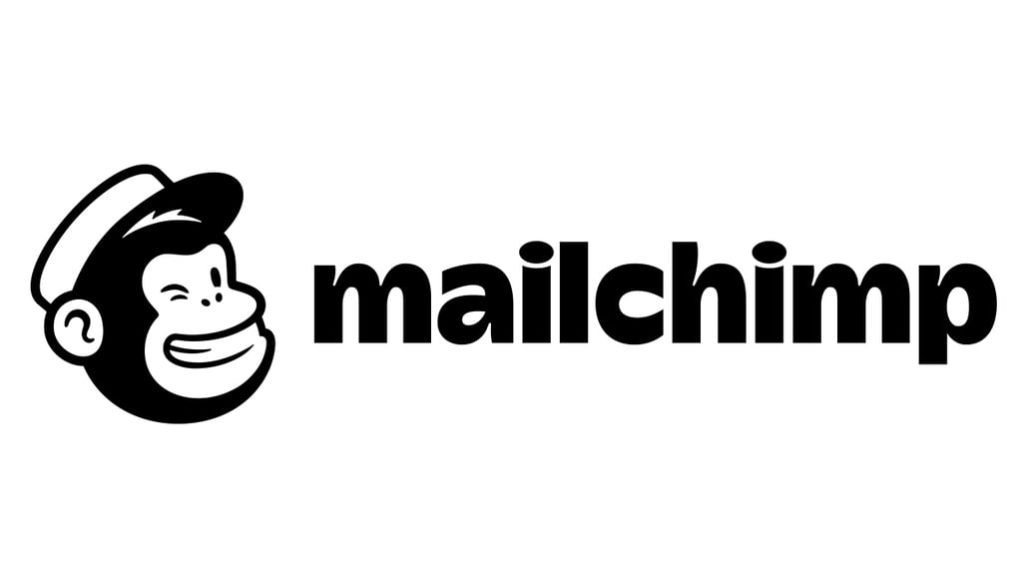
Mailchimp is one of the most popular e-commerce marketing platforms, trusted by businesses of all sizes for its simplicity and effectiveness. It combines ease of use with powerful tools, making it a go-to choice for startups as well as growing online stores.
- Simple to set up and navigate, making it ideal for beginners and small business owners. This allows teams to focus on strategy rather than technical setup.
- Supports email, social media, and digital ad campaigns from a single platform. Businesses can create consistent messaging and improve customer engagement.
- Offers smart content suggestions and automated workflows to save time. This ensures campaigns are personalized and optimized for maximum impact.
- Provides detailed insights into campaign performance, audience engagement, and ROI. Brands can quickly identify what’s working and adjust strategies accordingly.
- Flexible pricing plans make it accessible for startups, while advanced features allow growing brands to scale efficiently.
#6 Shopify

Shopify is a leading e-commerce platform tailored for small to mid-sized businesses, offering tools to create and manage online stores with ease. Beyond storefront design, it provides built-in marketing features and an extensive app ecosystem to support business growth.
- Let’s users build online stores with customizable templates that match their brand identity. This makes it easy to showcase products professionally.
- Includes email marketing, SEO features, and CRM for audience segmentation and personalization. This helps businesses reach the right customers with the right messages.
- Offers an app store with tools for social media promotion, analytics, and additional features. Businesses can extend functionality based on their specific needs.
- Enables selling across online stores, point-of-sale locations, and other channels. This ensures brands can reach customers wherever they prefer to shop.
- Some features, like multi-currency support and checkout customization, are limited. Product reviews require third-party apps, which may add complexity.
#5 HubSpot
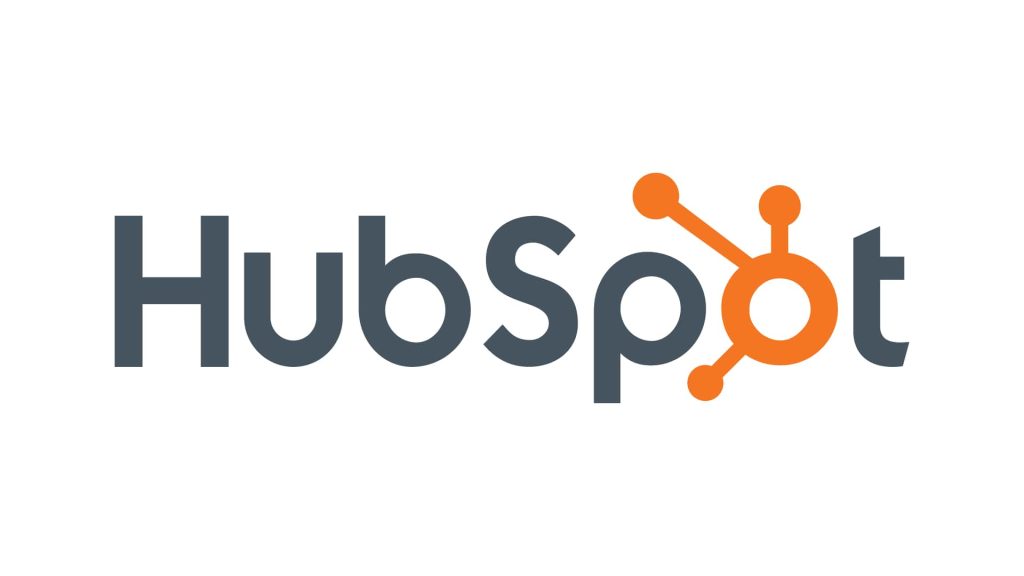
HubSpot is a comprehensive inbound marketing and CRM platform that helps e-commerce businesses attract, engage, and retain customers. Known for its all-in-one approach, it combines email, content, social media, and automation tools with a robust customer relationship management system.
- Provides a built-in CRM that integrates seamlessly with platforms like Shopify and WooCommerce. This helps businesses manage customer data, track interactions, and personalize campaigns more effectively.
- Offers advanced email marketing, automated workflows, and lead nurturing capabilities. Businesses can set up personalized sequences to engage customers at every stage of the buyer journey.
- Includes content management features along with SEO optimization and social media scheduling. This makes it easy to create a consistent online presence and improve search visibility.
- Delivers in-depth analytics to monitor campaign performance, customer behavior, and ROI. With these insights, businesses can fine-tune strategies and drive better results.
- Best suited for businesses that want to unify marketing, sales, and customer service. Its scalability ensures it can support both small e-commerce stores and larger enterprises.
#4 WooCommerce
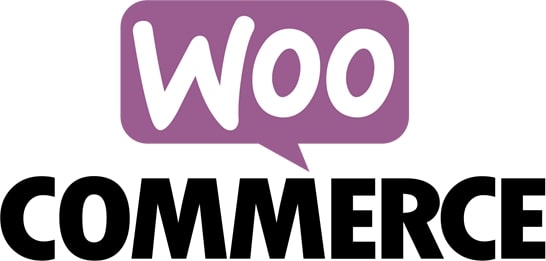
WooCommerce is a flexible, open-source e-commerce plugin for WordPress that allows businesses to turn their websites into fully functional online stores. It’s highly customizable, making it a popular choice for brands that want control over their e-commerce setup.
- Seamlessly integrates with WordPress, enabling businesses to leverage their existing website. This allows full control over design, content, and store functionality.
- Offers themes and extensions to create a personalized online store. Businesses can modify layouts, product pages, and features to match their branding.
- Supports email campaigns, discount codes, and SEO optimization. These tools help increase visibility, attract traffic, and drive conversions.
- Provides a vast library of plugins for payment gateways, shipping, analytics, and more. This flexibility allows businesses to expand features as needed.
- Ideal for both small shops and larger stores, offering complete control over store operations. Businesses can scale without being locked into proprietary platforms.
#3 Wix

Wix is a user-friendly website builder that includes e-commerce functionality, making it easy for small businesses to create online stores without technical expertise. It offers drag-and-drop design, marketing tools, and customizable templates to help brands establish their online presence quickly.
- Allows users to build online stores using drag-and-drop tools without coding. This makes it accessible for beginners and small business owners.
- Offers a wide range of professionally designed templates that can be tailored to reflect brand identity. Businesses can quickly create visually appealing storefronts.
- Includes email marketing, SEO optimization, and social media integrations. These features help attract traffic and engage customers effectively.
- Provides access to third-party apps for analytics, promotions, and payment solutions. This expands the functionality of the online store as business needs grow.
- Ideal for startups and small e-commerce shops, offering flexible pricing plans. However, it may have limitations for very large or complex stores.
#2 BigCommerce
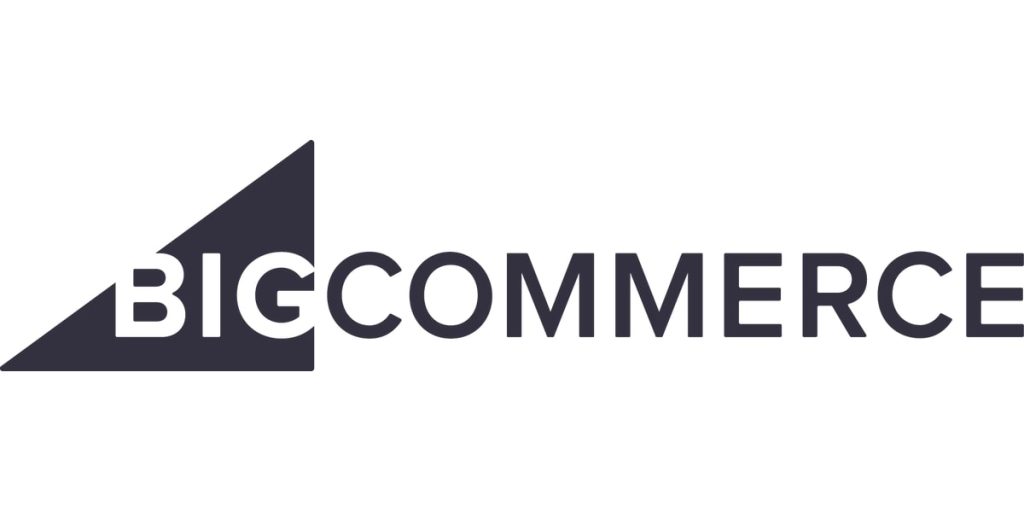
BigCommerce is a robust e-commerce platform designed for growing businesses that need scalability and advanced features. It provides a fully hosted solution with built-in tools for marketing, SEO, and multi-channel selling.
- Allows businesses to create customizable online stores that can grow with their needs. Flexible templates and design options help maintain a professional brand presence.
- Includes built-in SEO features, email marketing, and promotional tools. These help drive traffic, improve search rankings, and increase conversions.
- Enables selling on marketplaces, social media, and in-person channels. This ensures customers can purchase products wherever they prefer.
- Offers a wide range of integrations for payments, analytics, and shipping solutions. Businesses can expand functionality as they scale.
- Supports large catalogs, complex product options, and B2B functionality. This makes it suitable for medium to enterprise-level e-commerce businesses.
#1 PinnacleCart
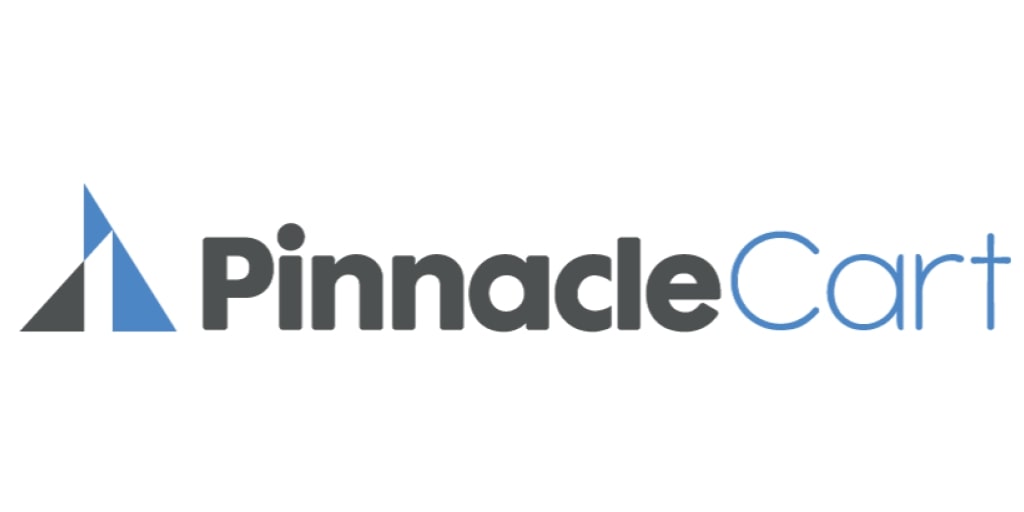
PinnacleCart is a cloud-based e-commerce platform designed to help businesses build, manage, and scale online stores efficiently. It focuses on simplicity while providing advanced tools for marketing, SEO, and customer management.
- Let’s users quickly create online stores with customizable templates and drag-and-drop design. This reduces setup time and allows businesses to start selling faster.
- Offers email campaigns, discount management, and SEO features. These tools help attract traffic, engage customers, and drive sales.
- Supports multiple payment gateways and shipping integrations. This ensures smooth transactions and flexible delivery options for customers.
- Provides insights into sales, customer behavior, and marketing performance. Businesses can use this data to optimize strategies and improve ROI.
- Suitable for small to mid-sized businesses looking for a manageable yet powerful e-commerce solution. It can grow with the business as needs evolve.
How to Choose the Right Platform
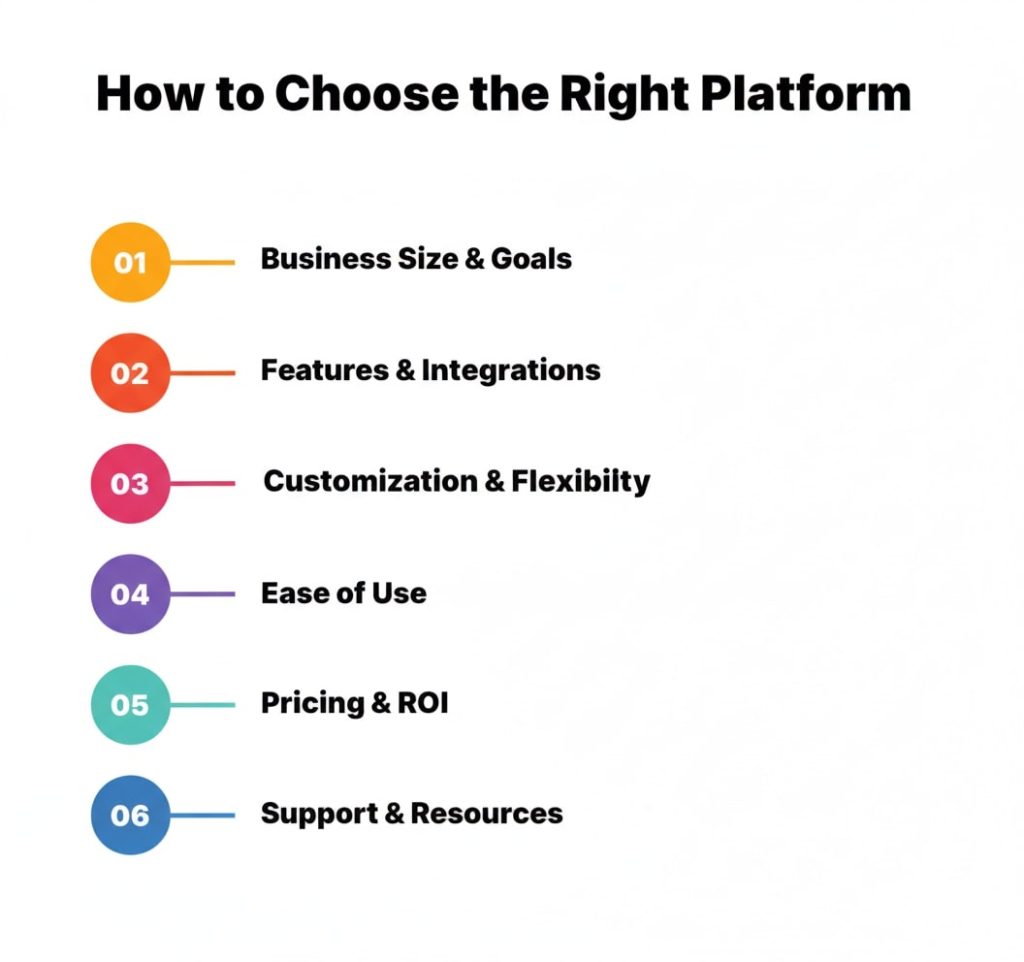
Selecting the right e-commerce marketing platform is crucial for your business’s growth and efficiency. The ideal platform should align with your goals, budget, and technical capabilities while providing the features necessary to reach and engage your customers effectively.
- Business Size & Goals: Small startups may prioritize ease of use and affordability, while larger businesses may need advanced features, scalability, and multi-channel capabilities.
- Features & Integrations: Ensure the platform offers essential tools like email/SMS automation, CRM, analytics, and seamless integration with your existing systems.
- Customization & Flexibility: Look for platforms that allow store design customization, workflow automation, and adaptable marketing campaigns.
- Ease of Use: A user-friendly interface reduces the learning curve and allows your team to manage campaigns efficiently without extensive technical knowledge.
- Pricing & ROI: Compare subscription costs, transaction fees, and additional charges. The platform should provide good value and a clear path to a positive return on investment.
- Support & Resources: Reliable customer support, tutorials, and community forums can help resolve issues quickly and ensure smooth platform operation.
Choosing the right platform involves balancing functionality, cost, and ease of use to ensure it supports both your current needs and future growth.
Conclusion
Choosing the right e-commerce marketing platform can make a significant difference in how effectively your business attracts, engages, and retains customers.
Each platform offers unique strengths—from powerful automation and advanced analytics to seamless integrations and user-friendly design—so understanding your business needs is key.
By considering scalability, customization, pricing, and support, you can choose a platform that grows with your business and drives higher conversions and long-term sales.
Deepak Wadhwani has over 20 years experience in software/wireless technologies. He has worked with Fortune 500 companies including Intuit, ESRI, Qualcomm, Sprint, Verizon, Vodafone, Nortel, Microsoft and Oracle in over 60 countries. Deepak has worked on Internet marketing projects in San Diego, Los Angeles, Orange Country, Denver, Nashville, Kansas City, New York, San Francisco and Huntsville. Deepak has been a founder of technology Startups for one of the first Cityguides, yellow pages online and web based enterprise solutions. He is an internet marketing and technology expert & co-founder for a San Diego Internet marketing company.



